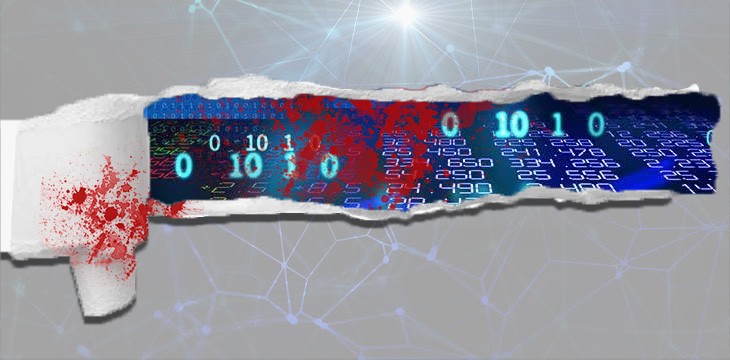“The Times 03/Jan/2009 Chancellor on brink of second bailout for banks.”
The above is the raw text data embedded in the genesis block of Bitcoin. For years those who have sought to use Bitcoin to further their own political agendas have cited the short snippet as proof that Bitcoin was created as a response to the financial collapse of 2008 and a cypherpunk’s response to the established financial system. Despite no evidence to support the claim, Satoshi Nakamoto is envisioned to be an anarchist born out of the Cypherpunk’s Manifesto here to bring a radical new society without government and laws.
It’s an interesting turn of events that the creator of Bitcoin has nothing in common with this image dreamed up by anarchists.
In a recent blog post written by Craig Wright, the work of the Greek playwright Aeschylus’ is cited as a case study and critique of modern cypherpunk thought. Oresteia is a trilogy of plays with enough political murder to make George RR Martin look tame.
Oresteia: A critique of modern cypherpunk thought
In it, Agamemnon returns home from the Trojan War where his wife, Clytemnestra, plots his murder for her own selfish gain. Years after Clytemnestra and her lover succeed in killing Agamemnon, Agamemnon’s son Orestes returns to enact vengeance on his mother. After Orestes commits matricide, the reader is left confused as to who is in the right and who is in the wrong throughout a saga of emotionally charged revenge killings. The gods are just as confused, and “Athena attempts to solve the dilemma through the invention of a new institution: the court of law.”
Prior to Athena’s intervention, the characters in the play existed under no legal protections. They lived in the state of anarchy desired by the cypherpunks, and murder had only the consequence of a guilty conscience. Craig then asks the question:
Would society be better if no laws existed against even [murder]?
Craig argues that “we can start to see that men are freer in a civil society where law exists, compared to the lawless condition that once existed.” A cypherpunk might read this and immediately call Craig a “statist,” but he rebuts that shortly thereafter:
As is the case with many things, it is moderation that creates the ideal society. The best society is not the one with the most laws, nor does it lie in the other extreme of no law (anarchy).
Why assassination markets don’t create societies
An “assassination market” was an idea thought up in 1994 by Timothy May, a cypherpunk from the mailing list Craig used to respond on. It was a way for anarchists to replace a court of law with a prediction market that “could, presumably, make up a list of people who had seriously violated the NAP (Non-aggression Principle)” where market participants could bet on when these people would die. Timothy May cited the use of untraceable digital cash as a way to accomplish this system.
The critical thinker would assume that Satoshi, through the creation of traceable digital cash, most likely would have opposed May’s views on assassination markets. Craig writes “there is the fallacy that assassination markets would keep us honest… in creating Bitcoin, I needed to find something that would not, as all other peer-to-peer networks had, devolve into an anarchist ‘free-for-fall’… it is not a system that cannot be followed or traced.” He is clear in his opposition to May’s ideas:
“Assassination markets do not create societies. They create corrupt systems and kleptocracies.”
Craig goes on to cite Plato’s Euthyphro to examine a separate problem from Oresteia – “conflicting laws and requirements of honour”. He discusses how society is made up of many people “who have differing views and perspectives” and that society is about tradeoffs, for which we should be grateful to have in a western society.
I wasn’t surprised to see Craig cite Greek and Roman thought to examine these philosophical topics. Over the past few years I have been telling Craig he should start a book club so that I and others could have some direction in what to study Bitcoin further. When he announced he would be putting up the first in a series of books, I was excited to see what area of computer science, economics, cryptography, or other realm of information the book topic would be. I was quite surprised to see Plato’s The Republic cited to study “politics and the state” with a series of thought-provoking questions about the nature of the state and whether or not we agreed with Plato’s views.
Craig’s fascination with ancient literature is summed up in his blog post:
Many of the problems we see now come from a lack of understanding of the past. More than two and a half millennia ago, the Greek and Roman societies faced similar conundrums. It is not a problem that they needed to solve.
He then warns that we must learn from history so as to not be doomed to repeat it.
It is with a rich irony that we find the creator of Bitcoin arguing against the common wisdom of the cypherpunks, and instead shows a different vision for his digital cash invention. Not a vision of individuals living in the shadows free from the effects of their actions, but instead a new system that allows honest people to compete without corruption. With the wisdom of our ancestors in our mind, Bitcoin enables us to build a new society not through radical rebellion, but through honest competition.
New to blockchain? Check out CoinGeek’s Blockchain for Beginners section, the ultimate resource guide to learn more about blockchain technology.








